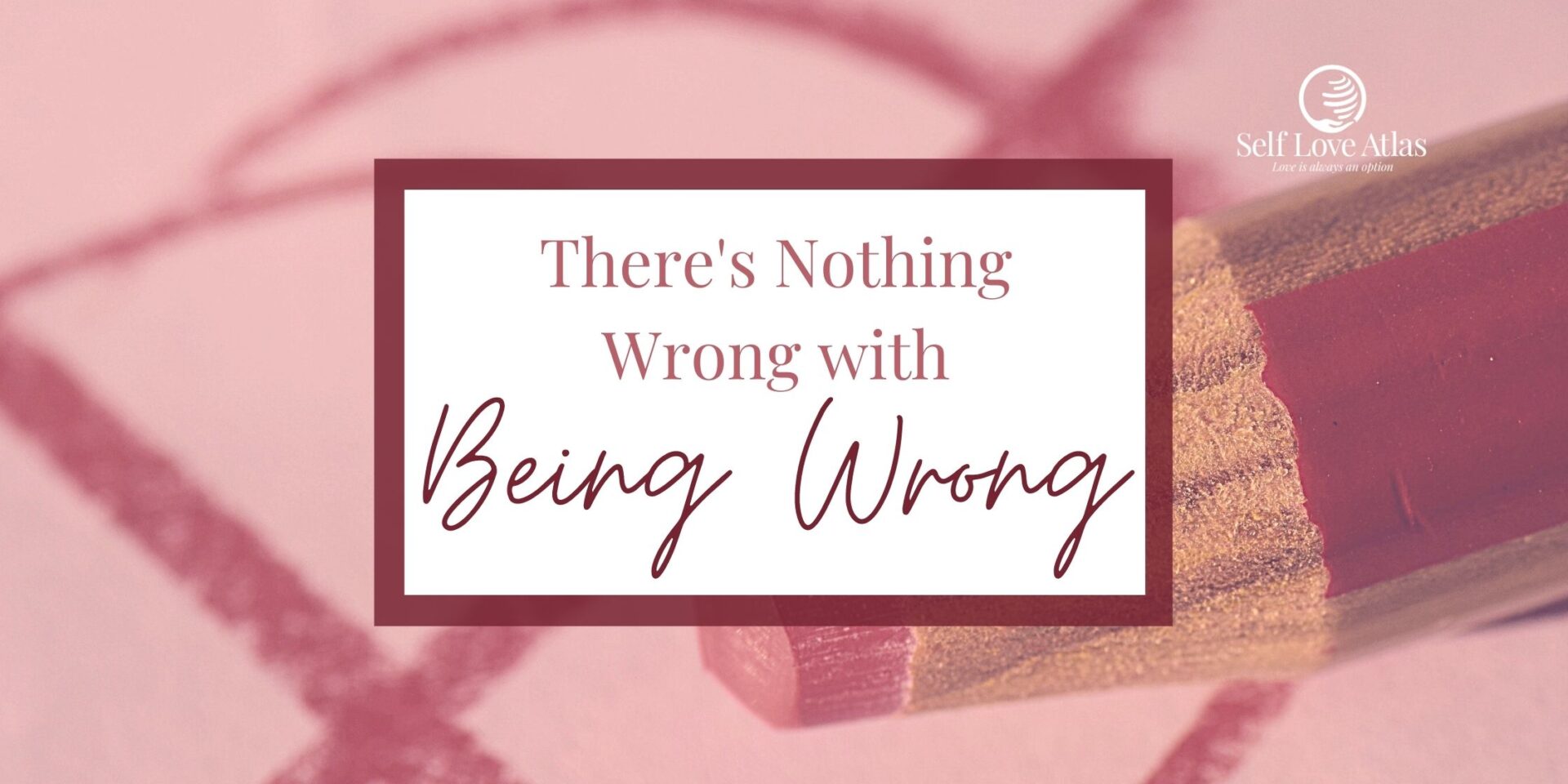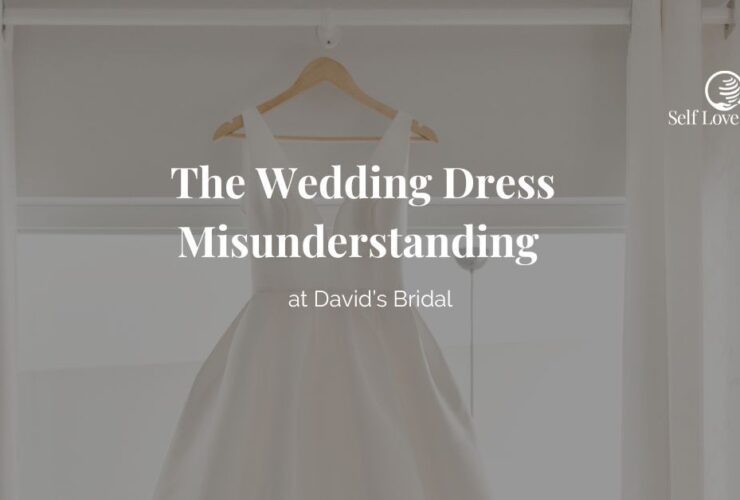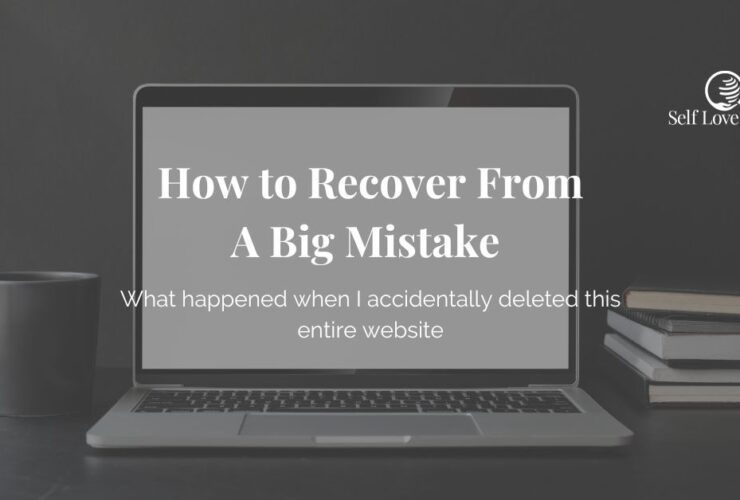There’s Nothing Wrong With Being Wrong
The most recent time I realized I was wrong, I was playing UNO with my family. I was down to the coveted single card, and had succeeded in saying “UNO” before anyone called me out on it. When my next turn came, I was so certain a win was in my future that my mind failed to notice my dad playing a differently colored card just before me.
I confidently played a “yellow reverse” on top of a “blue 6” and claimed to win.

Obviously, my family immediately called me on it, “No way!” “What was that!?” They pointed at the deck, laughing. You can imagine my embarrassment when I realized I had just committed an act of pure nonsense.
I was so in the wrong.
But apart from my move being “wrong,” there was nothing “wrong” with me “being wrong.”
There’s Nothing Inherently Wrong With Being Wrong.
When we’re talking about wrongness in the factual sense, it is natural, common, human, and innocent. No matter how much we learn and develop ourselves, we will always be wrong about some things. This makes wrongness inescapable.
And yet, everybody seems to hate being wrong. On some level, we fear it. We hope that we never have to face a moment when we speak with confidence only to have someone’s reply show us how uninformed and off-the-mark we really are.
However, if we could somehow accept wrongness as a natural and integral part of our human experience, then perhaps we could be less hard on ourselves and allow our own wrongness to benefit us rather than discourage us.
I’ve seen so many people go to extreme measures to avoid “being wrong” simply because there’s such a negative connotation attached to it. We make wrongness mean that we’re stupid or unthoughtful or bad at something. When in reality, being wrong happens to everyone regardless of how intelligent, thoughtful, or amazing they are.
Why Do We Fear Being Wrong?
On this blog, you’ll hear me talk a lot about how culture and socialization contribute to a lot of our personal problems. This post is no different.
When we’re growing up, our culture drills a very specific message into our heads: being wrong is bad.
Starting at a very early age, we go to school and get rated on our performance. If we turn in assignments with wrong answers, we get points subtracted from our grade. The more wrong answers, the more “bad” our grade is, and the more bad grades we get, the more other people start to think that “bad student” or “stupid” is our middle name.
Sure, somebody may have told us that “mistakes happen” or “nobody’s perfect” along the way, but it’s very unlikely that those words would erase the observation that people who were wrong often were sometimes punished or valued less.
So if being wrong scares you, it’s not your fault. It’s something you’ve been taught to steer away from for years.
Interestingly, people have different strategies to avoid it.
Early in life, if we find ourselves being wrong too often for our liking, a common response is to participate less; to give the universe fewer chances to label us as bad or “not good enough.”
this case, we might seek to avoid the discomfort of wrongness by sticking to what we know, and not exploring things we know we don’t know. It’s sort of a “if you don’t try, you can’t fail” sort of thinking. But this limits our ability to learn about and enjoy new things.
However, if we are right pretty consistently, then a common response is to put extra (and sometimes unnecessary) effort towards checking, double checking, and cross checking to make sure that we are never wrong.
But this can lead to a stubborn personality with clear ideas about the “right” way to do things. It can also contribute to an inability to adapt when things don’t go the way we want them to. This is the classic perfectionists mindset.
Notice how both of these methods of avoiding being wrong can actually place more limitations on a person’s life than “being wrong” does by itself.
The truth is, our fearing can hurt us more than “being wrong” ever will.
Our fear can hold us back, close our minds to change, progress, and improvement.
Since I started practicing life coaching within my training program, I’ve found that many people avoid making positive changes in their lives simply because they are afraid of being wrong.
They worry thatif they make a change in their lives or their perspective, and it works out well, then it would mean the way they live now is somehow “wrong.” They worry that they would have “wasted their time,” or “made a bad decision in the past.”
To me, this sounds like the grown-up version of “If I’m wrong, then I’m bad.” And it’s not true. It only seems bad because that’s how we’ve been taught to think about it.
If we can’t be wrong and forgive ourselves when it happens, will we ever move forward?
As a human being, you‘re guaranteed to be wrong sometimes. But as long as you’re able to acknowledge it, learn from it, and move on, then being wrong doesn’t have to mean anything bad about you.
When I played an invalid card, it never meant that I was “stupid” or “incapable of learning how to play UNO”. It just meant I was wrong, and it was okay. As soon as it happened, there was an opportunity to laugh it off and correct myself.
While a game of UNO is extremely inconsequential compared to many of the things we’ll be wrong about in our lives, the opportunity to correct ourselves and move on (in one way or another) is present anytime we get something wrong.
My wish for everyone is that we can grant ourselves that same forgiveness. That way, we can continue to move forward in our lives as easily and smoothly as possible.
Note: When I started writing this post, I had intended to make a detailed list of the potential benefits of being wrong. Because being wrong is more than just “not bad,” it can actually be beneficial to us! So here’s a post all about that: 10 Benefits of Being Wrong.
Did this post resonate with you? If so, I’d love to hear from you! Leave a comment or send me a message to share your thoughts. For more uplifting content, check out some other posts on my blog, follow me on instagram @morgan_barbret, or sign up for the Self Love Atlas Newsletter!
Cheers,
Morgan Rita Barbret






Permalink